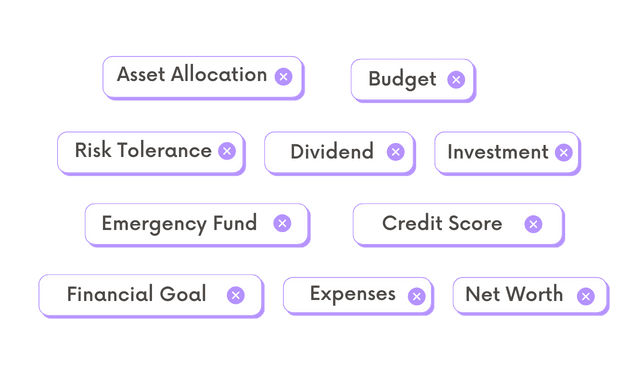Unscrambling Money Talk
Feeling lost in the language of finance? Don't worry, you're not alone! This glossary is your guide to navigating the financial world with confidence.

Curious to decipher more financial terms?
Curious to decipher more financial terms?
Download the Ultimate Financial Glossary for everyday Money Matters!
Download the Ultimate Financial Glossary for everyday Money Matters!

Subscribe to She Invests
A weekly newsletter filled with money tips & insights, curated for women.











